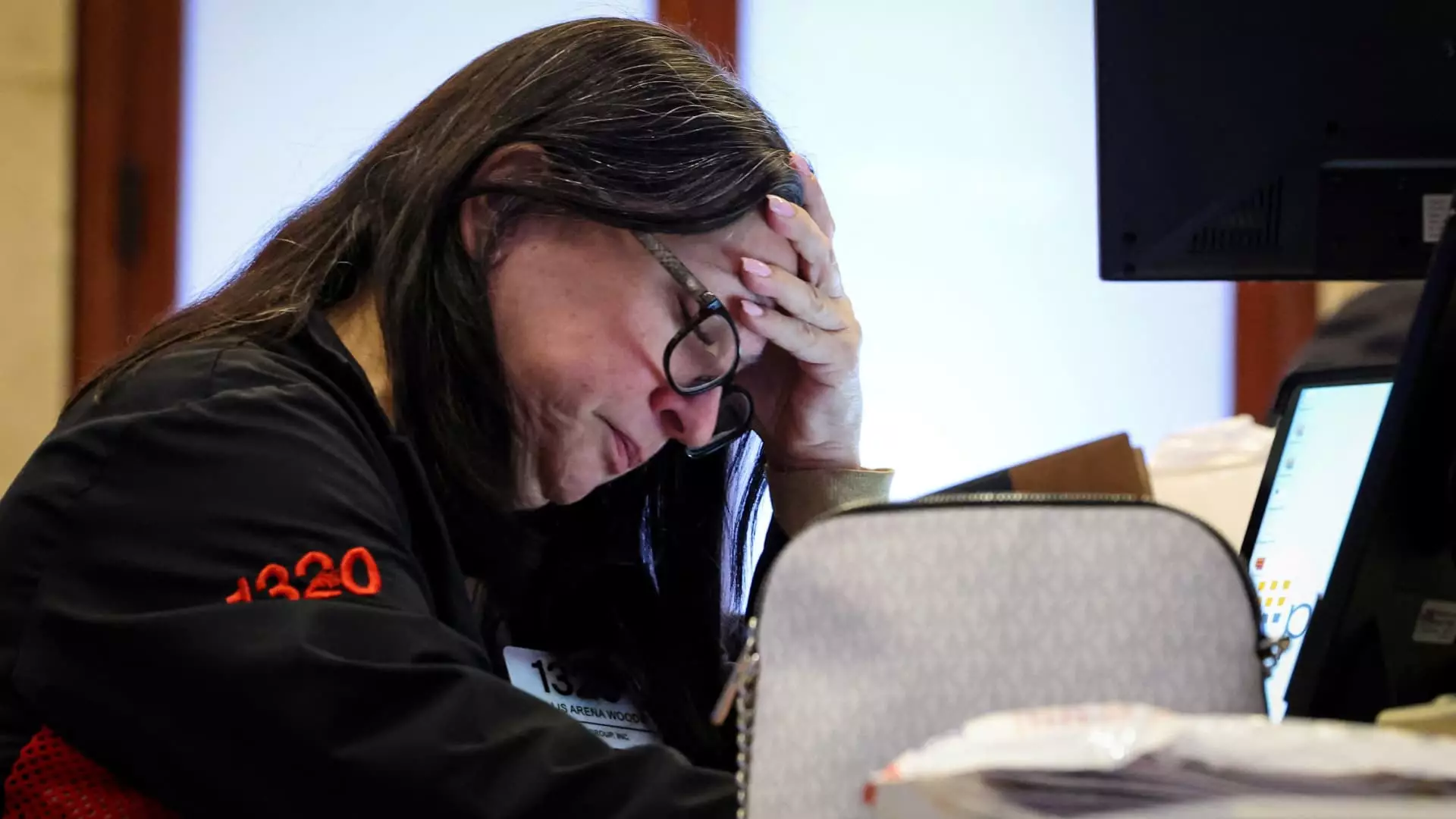As the drumbeat of President Donald Trump’s aggressive tariffs continues to resonate across global markets, the chilling specter of stagflation looms ominously over the American economy. Renowned economist Torsten Slok of Apollo Global Management warns that worsening trade skirmishes could plunge the U.S. into a murky economic quagmire. Unlike typical economic recessions, stagflation—a toxic mix of stagnant growth and rising inflation—spells disaster for families and investors alike. Slok’s analysis signals an urgent need for a recalibration in strategy, as he posits that the consequences of the current trade policies could shave off 1.5% from U.S. GDP while simultaneously injecting a troubling 1.5 percentage points into inflation rates.
Imagine the economic landscape: prices rising sharply while the economy crawls forward, creating a recipe for financial despair. This isn’t mere speculation; it’s a poignant reminder that trade wars don’t merely harm international relations—they hurt real lives.
The Stock Market: A Rolling Crisis
The stock market’s recent turmoil serves as a stark illustration of how quickly sentiment can spiral downward. Following a sharp 17% decline from its peak, the S&P 500 has seen staggering losses, including a gut-wrenching $6 trillion drop in value. The Magnificent Seven—those tech titans like Apple, Amazon, and Tesla—have collectively bled over $1 trillion in market cap. This isn’t just numbers on a screen; it’s real capital evaporating, jobs threatened, and entrepreneurial dreams fading.
The recent bear market declaration for tech-heavy indices like the Nasdaq Composite is particularly alarming; a 23% plunge reveals how deeply interconnected today’s economy is globally. The overreliance on international markets for revenue among major tech firms amplifies the impacts of tariff-induced turbulence, and as foreign markets choke under the pressure, American companies face increasing barriers to their own profitability.
The Confidence Crisis
A significant facet of Trump’s trade policies is how they erode investor confidence, sparking a pervasive uncertainty that clouds future business planning. When market players see potential trade barriers rise, they are effectively left in limbo, halting crucial investments that fuel innovation and job creation. The stifling of growth potential creates a vicious cycle where uncertainty breeds more uncertainty. With the economic environment fraught with risks, even cautious investors are rattled. The fundamental principle of capitalism—faith in future profit—pays the price.
This paralysis reflects a deeper concern regarding the broader economic ecosystem. According to Slok, extensive tariffs lead to a situation where the upside prospects are scarce, while downside risks proliferate. This should alarm not just economists but every American citizen who interacts with the economy daily.
The Retaliatory Nature of Global Trade
Trump’s promise that his economic policies “will never change” paradoxically ignores the reality of a complex global economy that thrives on reciprocity. China’s retaliatory measures highlight the tit-for-tat nature of trade wars—the U.S. imposes tariffs, and other nations respond in kind. This only exacerbates tensions, driving global trade to a standstill and widening the scope of losses across multiple sectors.
Trade relations that should be partnerships are now ongoing battles, hurting the everyday consumer as prices inflate and options dwindle. Rather than fostering an environment conducive to growth, the current policies backfire, reinforcing protectionism—even as they deter innovation and economic stability.
Justifying Economic Pain
Ultimately, the trade war led by Trump raises profound ethical questions about the justification behind economic suffering. While proponents may argue that tariffs protect domestic jobs, the heavy burden on consumers—including increased prices of everyday goods—suggests a disconnect from reality. Building walls around the economy leads to casualties, particularly among those who can least afford it. When the middle-class families are squeezed by rising costs while simultaneously facing stagnant wages, the notion of protectionism becomes a double-edged sword.
A healthy economy thrives on collaboration, not conflict. Stakeholders need to evaluate whether the misery inflicted by aggressive trade policies is worth the supposed gains. It’s crucial that we recognize the long-term implications of current political decisions, reshaping strategies that prioritize sustainable growth over fleeting political victories. We are at a critical juncture where the choices made today will echo throughout our economic landscape for years to come.


Leave a Reply